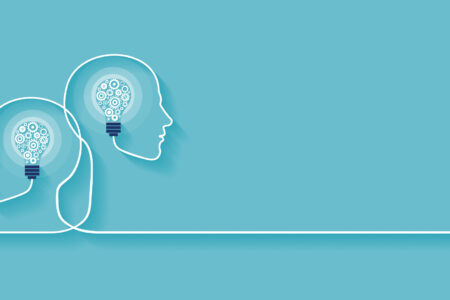
Computer science and nursing science may not be a common pairing now, but as digital health evolves, nursing will be an essential partner in the effective integration of artificial intelligence (AI) in health care systems. This partnership carries with it a number of ethical and social implications. As the AI Now Institute emphasized in a recent report, rigorous interdisciplinary research is needed to support the processes and policies that will direct the development, use and governance of AI within complex social systems. Nurses are already exploring the current implications of AI, as well as reflecting on how this technology will continue to influence their discipline, profession and practice.
Nursing has a long history of examining the role of technology in the provision of care through theoretical and philosophical lenses. Nurses have taken “professional ownership of the space between technology and patient, and the responsibility for maintaining humane care in technological environments.” Yet now, in the face of exponential technological change and innovation, nurses are no longer just mediators between patients and technology, but rather an integrated element of the biotechnology landscape. This inextricable alignment of nursing and technology positions nurses to influence advancements such as the use of AI in health care systems.
To ensure nurses are fully equipped to participate in the implementation and regulation of an AI future, there are a number of actions the profession should begin to address today.
Nurses should be involved in the design and implementation of AI solutions, identifying the ways patients are best served by the technology. As AI evolves, nurses can be part of putting digital health solutions into practice – they can use their expertise to help clinicians adopt and continue to use the new technology. Nurses also have insights that can help address possible barriers to changes in clinical settings, for example change in workflow practices. These are essential elements for the successful advancement of technological change in Canada’s health care system. The advent of nursing robots, some of which can support patients in carrying out their activities of daily living or monitor their emotional states and provide interaction, has provided a timely focus for these efforts and opened a debate on the implications of this technology for point-of-care practitioners.
Another vital contribution that nursing can make to the progress of AI in health care is in providing standardized data. Clinical nursing data include comprehensive patient assessment and outcome details. Once standardized, these data can improve knowledge about illness management and continuity of care; ultimately, they can be compiled into large nursing data sets that could be utilized in AI processes. The potential of these standardized data to be a viable driver of AI development in health care is an opportunity not only for nurses but also for patients to be represented in this evolution.
Meanwhile, changes should be made in nursing education to better secure the position of nurses in AI. Enhanced informatics offerings should be more readily available to nursing students at the undergraduate and graduate levels, as well as to point-of-care practitioners and nursing leaders. While significant progress has been made on the integration of technology into nursing education, especially in the area of simulation, there are still no Canadian nursing schools that require nursing informatics programming in their undergraduate curricula.
Nursing education does provide an exceptional grounding in other areas, such as social justice, critical thinking and the need to adapt care based on individual, holistic assessment. Starting from this foundation, and directed by an ethical code of conduct, nurses leave undergraduate programs well equipped to evaluate and adapt to the many changes they will experience over their careers. Kate Crawford and her associates at the AI Now Institute have called on the AI industry to hire experts from other disciplines to engage in system design and deployment as a way to combat systematic bias and inequalities. Nursing can produce these much needed experts with the educational opportunities it already provides, with the integration of informatics training, which is essential.
The Canadian Nurses Association has described the complexity of decision-making in nursing practice, noting that it “is influenced by evidence and also by individual values, client choice, theories, clinical judgment, ethics, legislation, regulation, health-care resources and practice environments.” AI is driven by pattern recognition ─ analysis that occurs across millions of data points ─ but in nursing, often these results would still need to be considered one patient at a time. As work continues to address issues of bias and to establish a more robust ethical foundation, this practice perspective will be invaluable in contributing to a better understanding of the human and social impact of these technologies.
Nursing and technology are now ─ or perhaps they always have been ─ inextricably linked. AI does not present a threat to the future of nursing; rather, it presents an opportunity for people and machines to collaborate on problem-solving and innovation. The American scholar Ken Goldberg refers to this as “multiplicity,” combining AI with IA, or intelligence amplification, “where computers help humans learn and work.” While nursing has much to offer AI, there is also a clear advantage for nurses to actively seek out and engage in IA. The increasing complexity of the Canadian health care system is straining existing solutions. While AI alone may not prove to be the answer, the potential for multiple collaborations to produce transformation as yet unimagined seems limitless.
This article is part of the Ethical and Social Dimensions of AI special feature.
Photo: Shutterstock/By Thomas Andreas
Do you have something to say about the article you just read? Be part of the Policy Options discussion, and send in your own submission. Here is a link on how to do it. | Souhaitez-vous réagir à cet article ? Joignez-vous aux débats d’Options politiques et soumettez-nous votre texte en suivant ces directives.








